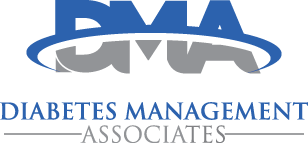Our environment is a learning arena. We expect health care facilities to be the epitome of that experience but think again. Hospitals, prisons, and schools are businesses with a budget just like the rest of us. Quality costs money.
This is a typical breakfast in the U.S. Let’s breakdown why NOT to eat this at home:

- Very high in carbs including- banana, cheerios, toast, syrup, oatmeal, muffin and orange juice. High carb, highly processed foods cause a glucose rise and quick fall few hours later leaving the body craving more carbs.
- This meal is enough calories for a teenage boy for an entire day.
- Grains that went into cheerios, muffin and French toast were grown in fields that used glyphosate as a pesticide.
- The coffee rich creamer contains hydrogenated coconut oil what has been ruled NOT SAFE by the FDA.
- The syrup for the French toast is high in fructose corn syrup.
- Cow’s milk from conventionally raised cattle contains dozens of reproductive homes, allergenic proteins, antibiotics, chemicals, inflammatory compounds, and growth factors.
- Low-fat which typically contains sugar and additives.
- Factory farmed eggs have the same concern as milk.
- Margarine is highly processed.
This meal will drive inflammation, suppress the immune system, induce oxidative stress and provide none of the quality protein, vitamins and minerals and phytonutrients needed to heal. Breakfast foods in this country have become easy and convenient. Thus, less nutritional.
What to eat for breakfast?
- Each meal needs to be balanced with protein, fat and carbs. Never eat an all-carb meal such as JUST oatmeal or cereal.
- Avoid cereal. ALL cereals are highly processed with poor quality grains and are NOT beneficial.
- Consider supper for breakfast! I know that sounds weird to us but not to our grandparents. They often ate leftover supper for breakfast.
- If you are going to eat dairy, try goat or sheep’s milk and butter. Choose organic.
- Change to maple syrup in small amounts.
- Choose healthy oils such as olive or coconut. You want to stay away from trans fats, hydrogenated oils, peanut oil, soybean oil, canola oil, sunflower oil, safflower oil, vegetable oil, vegetable shortening, and margarine.
- Choose whole fat milk rather than low fat. A 22-year study of 3,000 seniors examined the link between dairy intake, heart disease, and death. Individuals who had higher blood levels of saturated fatty acids from dairy had a 42 percent lower risk of death from stroke and no increased heart disease risk.
- Choose other fruits beside bananas which are high in starchy carbs.
- Low carb breakfast bowls can be made at home several days ahead or bought frozen. Avoid potatoes in the bowls.
- Skip breakfast. Only eat when you are hungry. If you are not a morning person, wait to later in the day to eat.
Live Long, Live Healthy!
Dr. Julie Wood is a Nurse Practitioner and has been serving the Middle Tennessee area for more than 30 years, specializing in adults with obesity, prediabetes and diabetes. Office is located at 401 First Avenue, Mt. Pleasant, TN and statewide with telehealth. Dr. Wood can be reached at 931-325-5560, www.diabetesmgtassociates.com, info@diabetesmgtassociates.com.
Articles are meant to be informative and should never replace the advice of your health care provider.
3/14/22
